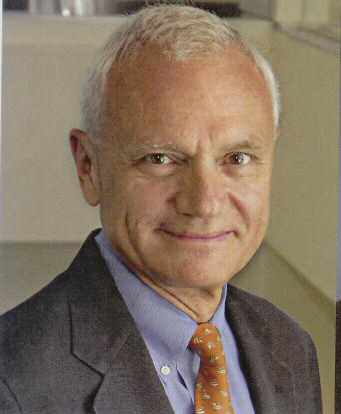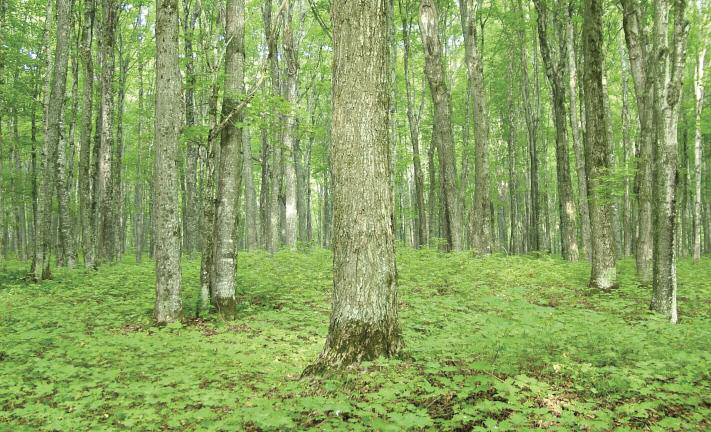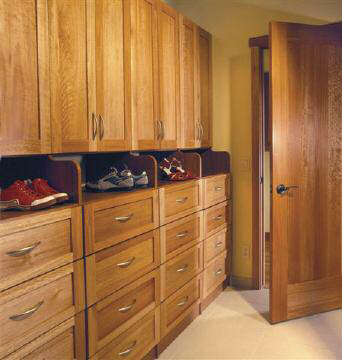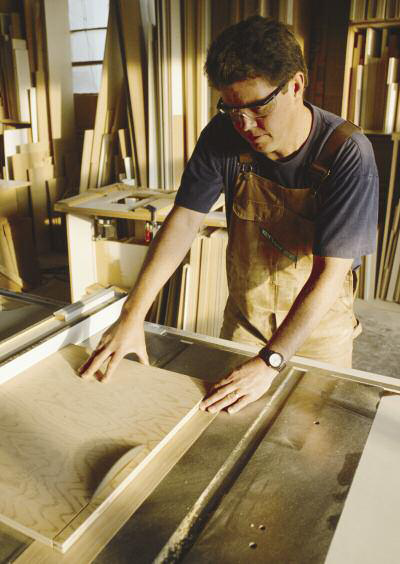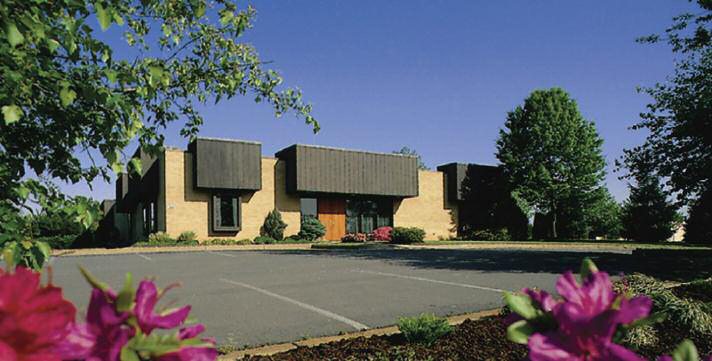HPVA celebrates 90 years
8 April 2011The HPVA was formed when the Hardwood Plywood Manufacturers Association merged with the Fine Hardwood Veneer Association in 1992. Its roots, however, lie with the Plywood Manufacturers Institute, established in 1921.
According to Kip Howlett, president of the Hardwood Plywood & Veneer Association, HPVA’s mandate is the advocacy for, promotion of, and implementation of, product performance standards on behalf of its members.
“We represent our members’ interests to government and provide education and testing to ensure their products meet the highest performance standards. Our clients include industry, government and other laboratories,he said, noting that HPVA recently updated national consensus standards for hardwood plywood and engineered wood flooring for formaldehyde emission properties.
“HPVA started performing these kinds of services in 1954,he said, adding that HPVA works closely with the American National Standards Institute (ANSI) on product certification. He noted that there are also voluntary standards to which HPVA members adhere, which exist to ensure that the hardwood plywood and veneer produced by association members is the best available.
Staunch advocates
A lawyer by profession, Mr Howlett brought 30 years of relevant experience to his position of president in 2008, including several as vice president for environment and government affairs at a major US forest products company.
“Working to protect and further our members’ interests is a vital function of the association,he said.
With respect to the HPVA’s public policy advocacy programme, recent issues have seen HPVA become a more active participant in the Hardwood Federation and its Political Action Committee (PAC).
He explained that HPVA supports the Hardwood Federation, which retains a lobbyist in Washington, and that through the collective efforts of affiliated hardwood associations, it helps prioritise issues addressed by the Federation. Established in 2004, the Hardwood Federation’s website states its role is to promote and represent the business interests of its industry and to generally assist in maintaining a healthy hardwood community – www.hardwoodfederation.net.
HPVA’s interests in the Hardwood Federation are represented by Brad Thompson, ceo of HPVA member Columbia Forest Products, who co-chaired the PAC in 2010 and will be the board chairman of the Federation in 2011.
Challenges bring solutions
Mr Howlett doesn’t downplay the challenges facing North America’s hardwood plywood and veneer industry, citing restrictive trade and federal policies, the sometimes blatant disregard of certain foreign governments to chain of custody and legality requirements, and the LEED programme (Leadership in Energy & Environmental Design) which, he believes, needs to give more recognition to solar powered, renewable hardwoods for ‘green buildings’.
The word ‘sustainable’ originates from forestry after all, he notes. But, he insists, it is these challenges that make the HPVA a more important entity than it was two decades ago, when the industry was flourishing.
“Then the Cold War was ending and the economy was booming. Now we’re dealing with terrorism, economic uncertainty and globalisation, with China a major global power. Through all this the association has had to adapt and share the same challenges and opportunities as the members we represent,he said.
Adapting has meant having a strategy that explicitly reflects the priorities of the association’s activities. To this end, HPVA collaborates with affiliated associations in initiatives such as the Unified Hardwood Branding Project and with the American Hardwood Export Council in market promotion. American hardwood industries have come together in a consolidated programme to develop a logo, tagline, and underlying set of messages to promote American hardwood products.
“Synergies with other organizations enhance value for our members,Mr Howlett said, adding that HPVA reaches key audiences through web-based outreach programmes, such as specifiers in the cabinet and furniture industries, architectural woodworking companies and distributors.
He further stated that the circumstances under which HPVA members are now forced to do business have changed considerably in recent years.
“Offshore manufacturers processing North American hardwood logs have gained a larger share of the domestic market, resulting in the loss of an important manufacturing sector that has traditionally been an important customer in our members’ value chain. I’m referring to furniture, ready-to-assemble cabinets and architectural woodwork. Our markets are now global and market access issues have become more important for our value-added products.
“We have to remember that in a weak economy cheap becomes the critical factor, whereas in a healthier economy the focus tends more towards value.”
No substitute for the real thing
Inevitably, a discussion about natural hardwoods draws comparison with man-made substitutes. In this arena, HPVA is, perhaps, able to deliver its strongest message.
“HPVA members’ products offer natural advantages. Their natural beauty and the flexibility to use veneered hardwood products in many different ways are the natural advantages of the products of this industry.
People prefer real wood, leather, cotton and wool because of their look and feel. There are synthetic alternatives to all these natural materials, but people really prefer the real thing, and that’s what our industry offers,he said.
Mr Howlett sees innovation as a driving force behind the development of new hardwood plywood products.
“HPVA members utilise expanding technologies to develop new uses for engineered hardwood products, which includes remarkable improvements in raw material yield, ensuring a sustainable future because we get more, use less and create new products in the process. These characteristics are unique to our sector of this industry and why we need to have our natural resource manufactured here.”
Mr Howlett offered a thought-provoking analogy on the role of wood substitutes. “It’s like Apple and Microsoft. I’ll leave it to the reader to decide which one engineered hardwoods are most like.”
Where the advantage lies
“The US has a compelling natural advantage as one of only three regions rich in hardwood resources. There is more hardwood standing in our forests today than 60 years ago, with net growth exceeding harvest. The same can’t be said of other forested regions.”
Mr Howlett went on to say that, unfortunately, many of the industries making up the value chain for HPVA members have left the US because of advantages elsewhere.
“When your customer base leaves, as with the furniture industry, they do so because of cheap labour, usually lax environmental and safety laws, under-valued currencies, access to abundant cheap and illegal logs and, often, industrial policies intended to provide employment and maintain civil order.
“Add in restrictions on value-added components, like US veneer, and the current situation is explained. These factors are all conscious decisions and the demand for these products is America’s insatiable consumer-driven appetite for cheap abundance.”
While the challenges, at times, seem to provide an unfair advantage to imports, Mr Howlett believes that opportunities await.
“Industry is greening and many of the activities that skirt compliance abroad will have to end. Canadian and US consensus standards for formaldehyde emissions and physical performance properties exist to protect consumers’ interests. With North American producers certifying to these standards, consumers of HPVA-certified products can be satisfied in knowing that the risks associated with the manufacture of their purchases are being correctly managed.
“Consumers are buying products whose origins are verifiable, whose quality is assured and whose performance standards are certified.”
